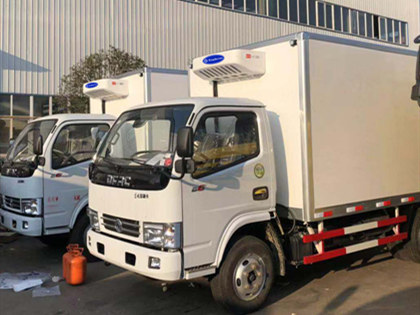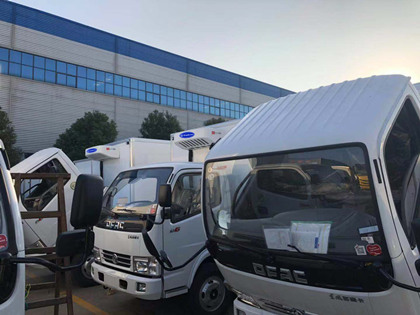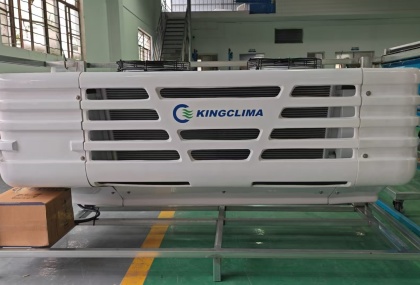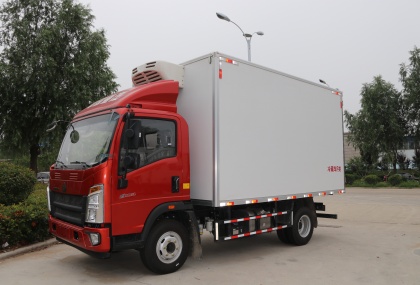Advice for choosing vehicle refrigeration unit
Choosing an aftermarket transportation refrigeration unit requires careful consideration of your specific needs, cargo requirements, and vehicle type. Below are the steps and key factors to help you make the right choice:
1. Determine Your Specific Needs
Type of Cargo: Identify the temperature requirements of your goods:
Frozen Goods: Require sub-zero temperatures.
Chilled Goods: Need moderate cooling.
Ambient Temperature Control: Some products may require consistent but not extreme temperatures.
Payload Size: Consider the volume of the goods you’ll transport. Larger payloads require more powerful units.
2. Choose the Right Temperature Range
Single Temperature: For goods that need the same temperature across the entire vehicle.
Multi-Temperature Zones: For transporting different goods with varying temperature requirements in one trip.
3. Consider the Power Source
Engine-Driven Units:
Powered by the vehicle’s engine.
Cost-effective and simpler to install but can increase fuel consumption and engine wear.
Electric-Driven Units:
Operates independently of the engine using a battery or external power source.
Ideal for reducing fuel costs, emissions, and noise levels.
Hybrid Systems:
Combine engine and electric power for more flexibility and efficiency.

4. Assess Energy Efficiency
Fuel Efficiency: Look for units designed to consume less fuel during operation.
Battery Life: For electric systems, ensure the unit has a long-lasting battery and fast recharge capabilities.
Insulation: Choose a unit that works well with your vehicle’s insulation to minimize energy loss.
5. Check Cooling Capacity
Measure the required BTU (British Thermal Units) or wattage based on the size of your van or truck and the cargo’s cooling needs.
Ensure the unit can maintain consistent performance even in extreme weather conditions.
6. Evaluate Reliability and Durability
Choose units from reputable brands known for high-quality components and long-lasting performance.
Consider systems with built-in protections, such as overload safety and anti-corrosion features.

7. Look for Advanced Features
Digital Controls: Easy-to-use interfaces for setting and monitoring temperatures.
Real-Time Monitoring: GPS-enabled systems that allow you to track temperature and performance remotely.
Defrost Functions: Automatic defrosting for consistent operation.
Noise Levels: Opt for quieter units if operating in residential areas or overnight.
8. Consider Maintenance and Support
Ease of Maintenance: Units with modular designs make repairs and replacements easier.
Service Availability: Ensure spare parts and repair services are readily available in your area.
Warranty: Look for comprehensive warranties to cover unexpected issues.
9. Budget and Cost
Initial Cost vs. Long-Term Savings: While electric and hybrid units may have higher upfront costs, they can save money on fuel and maintenance over time.
Financing Options: Some suppliers offer leasing or installment options to ease the financial burden.
10. Compatibility with Your Vehicle
Ensure the refrigeration unit is compatible with your vehicle's size, power system, and structure.
Confirm it fits well with your existing insulation and cargo space layout.
11. Compliance with Regulations
Temperature Control Standards: Ensure the unit complies with local and international food safety and pharmaceutical transport regulations.
Environmental Standards: Opt for units using eco-friendly refrigerants with low global warming potential (GWP).
12. Read Reviews and Get Recommendations
Check online reviews for real-world performance feedback.
Seek recommendations from industry professionals or businesses with similar transport needs.
13. Compare Suppliers
Reputation: Choose suppliers known for reliability and customer support.
After-Sales Service: Ensure the supplier offers ongoing support, spare parts, and training.
Conclusion
Selecting the right aftermarket transportation refrigeration unit involves balancing your budget, cargo needs, and vehicle type with energy efficiency, durability, and advanced features. By thoroughly researching and comparing options, you can ensure your goods are transported safely and cost-effectively. As a professional vehicle refrigeration unit supplier, Kingclima offer 7*24 professional and patient help, if you need, please contact us at anytime.
-
From Farm to Table: Trust Our Refrigeration Systems to Deliver Freshness!
2025-09-26 15:23:09
The journey of perishable goods—from farm harvests to grocery shelves—demands precision, reliability, and unwavering temperature control. Any breakdown in the cold chain can result in spoilage, financial losses, and compromised food safety. That’s why leading logistics providers and food distributors rely on advanced truck refrigeration systems to ensure their cargo arrives fresh, safe, and market-ready.
read more
-
Don’t Let the Heat Spoil Your Haul – Try Our Advanced Refrigeration Systems!
2025-09-26 14:55:58
In the world of perishable freight, temperature control isn’t just a feature—it’s a necessity. Whether you're transporting fresh produce, dairy, pharmaceuticals, or frozen seafood, a single degree of deviation can mean the difference between profit and loss. At kingclima, we engineer high-performance truck refrigeration systems that combat heat, humidity, and harsh conditions—ensuring your cargo arrives in pristine condition, every time.
read more
-
Reliable Cooling for Every Mile – Explore Our Truck Refrigeration Range!
2025-09-25 16:15:32
At kingclima, we understand that your refrigerated cargo represents more than just inventory - it's your reputation, your customers' trust, and your bottom line. Our comprehensive range of truck refrigeration systems delivers military-grade reliability combined with cutting-edge technology to protect your temperature-sensitive shipments across every mile of their journey.
read more


.jpg)

